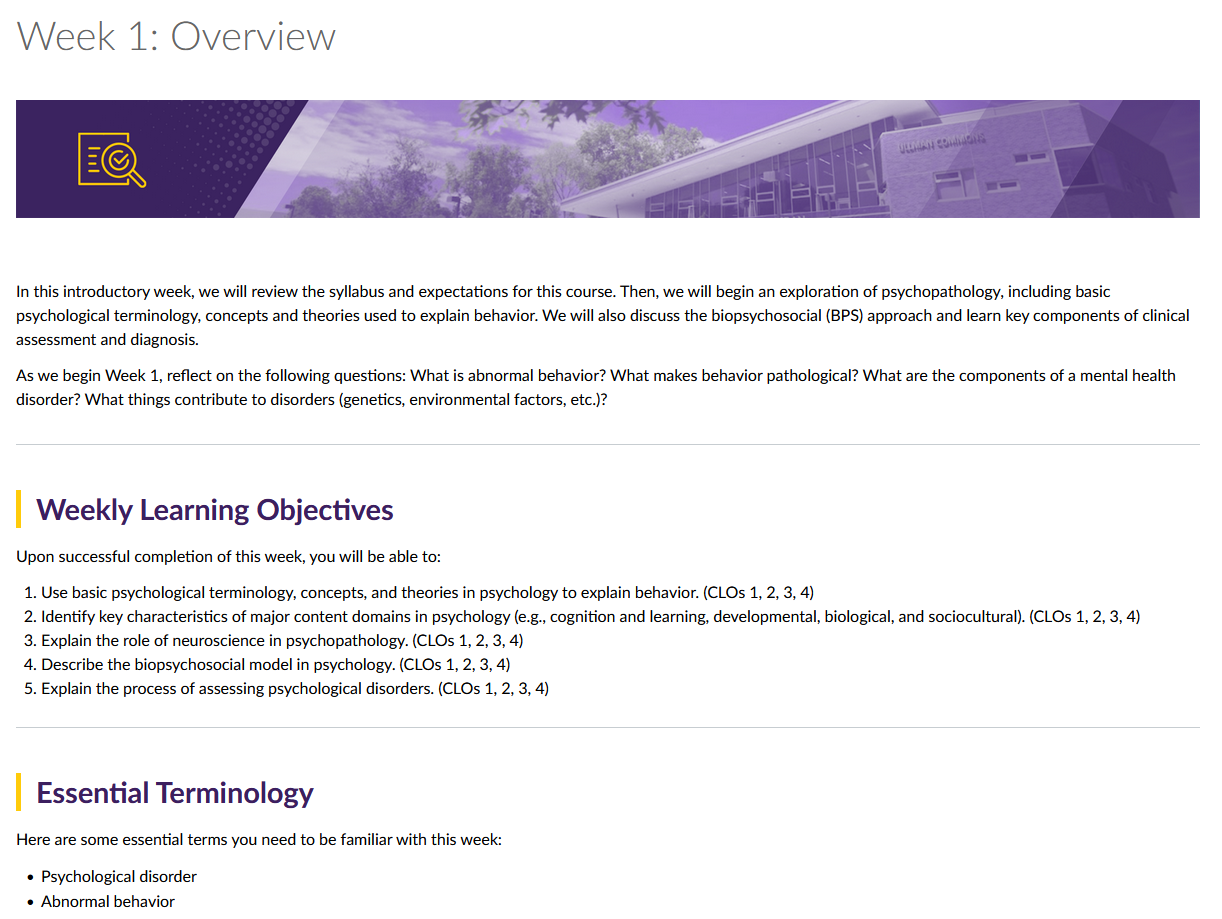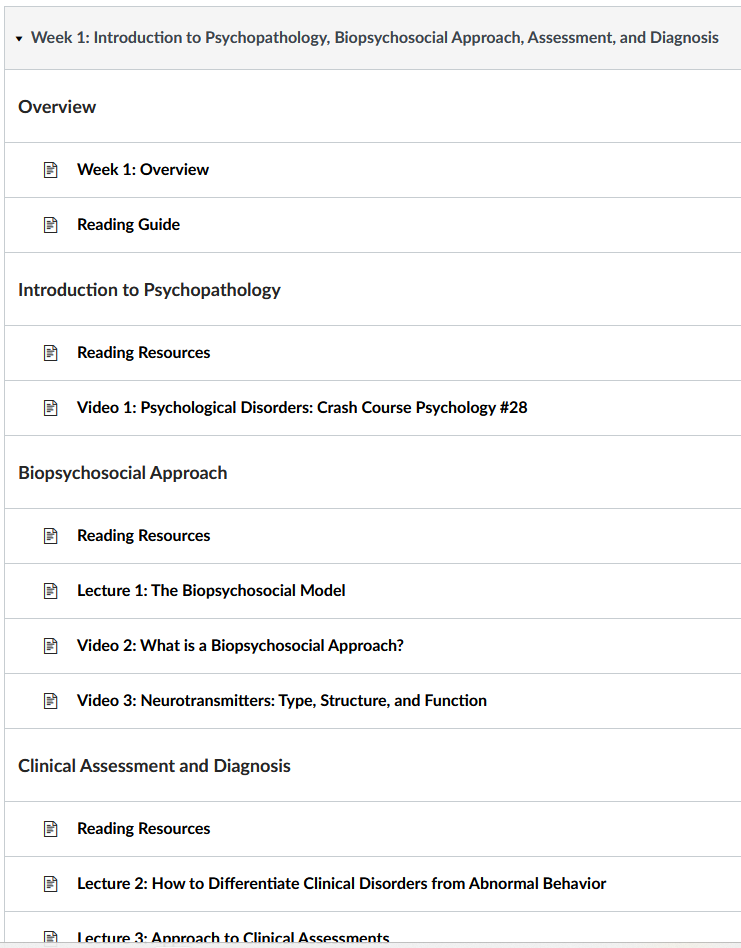Build Learning That Matters
Learner-centered design that supports people, not just performance
Meet ID Deb Walker, MEd, MSLxDET
I’m an instructional designer and educator with over 20 years of experience creating effective learning for K–12 and adult audiences in online, classroom, and blended environments. My work spans curriculum design, eLearning development, instructor-led training, nonprofit training programs, and developmental editing.
I use a learner-centered approach grounded in design thinking, Universal Design for Learning, and backward design. I focus on clarity, accessibility, and alignment with organizational goals. Whether designing a full curriculum or a microlearning module, I aim to make learning relevant, inclusive, and results-driven.
I’ve designed learning experiences for universities, nonprofits, and child welfare agencies. Higher education clients include Western Governors University, University of Maryland Global Campus, Northeastern University, University of Arizona, California Lutheran University, and University of Canada West. I’ve also led foster parent trainings, built onboarding for case managers, and supported nonprofit teams through accessible, outcomes-based learning in Canvas and Brightspace.
I’m often brought in for complex projects that require collaboration, adaptability, and clear communication. I work closely with subject matter experts and project leads to align content with learning outcomes and guide development from start to finish.
I use tools like Articulate Storyline, Rise, Adobe Captivate, H5P, Canva, and LMS platforms, such as Canvas and Brightspace. I also integrate generative AI to support idea development and streamline workflows while ethically maintaining instructional quality and learner focus.
I design learning that works for people and for the organizations that serve them.

Select Portfolio Highlights
Browse a selection of my featured portfolio highlights, showcasing a range of instructional design projects. These examples describe my approach to creating engaging, learner-centered experiences. Each project reflects my commitment to blending research-based methodologies with real-world application to drive meaningful learning outcomes.
Concept Project: Building Trust in Foster Care Scenario
This interactive scenario is part of a concept course designed for foster care case managers. It simulates real-life situations where case managers must navigate sensitive conversations and decision-making processes with foster children and families. The design process focused on creating a learner-centered experience, ensuring the scenario would be interactive and provide meaningful practice in key skills. The scenario challenges case managers to think critically and make decisions they encounter every day. Be sure to explore the Concept Project Design Process Walkthrough to the right for a detailed explanation of my design process and how it fits into the overall course structure.
The scenario was created with Articulate Storyline 360.
To begin the scenario, click NEXT> in the lower right corner of the screen.
Concept Project Design Process Walkthrough
Explore a detailed walkthrough of my design process for the “Building Trust and Effective Relationships” course, developed for foster care case managers at Nest Family Services, a conceptual foster care agency. It highlights the various stages, from needs analysis and learner assessment to content development and final delivery. I integrated design thinking, backward design, and UDL principles to ensure clear learning objectives aligned with real-world outcomes and support for diverse learning needs to create an empathetic, learner-centered experience. Each step was carefully crafted to engage learners, meet their needs, and the organizational goals.
The walkthrough was created with Adobe Captivate.
Close the Table of Contents by clicking “X” in the upper right corner, then click the Click to Begin button to start.
Mindfulness for Child Welfare Workers
The “Mindfulness for Child Welfare Workers” course was developed as part of a research study to explore whether Dialectical Behavior Therapy (DBT) mindfulness techniques could help child welfare case managers in the United States manage stress and reduce burnout. This course features 10 engaging modules that introduce participants to DBT-based mindfulness strategies, emotional regulation, and stress-reduction techniques. Each module is designed to build practical skills that child welfare workers can apply in their daily work, with a focus on improving well-being and resilience. The course offers a blend of theory, guided exercises, and self-reflection activities aimed at fostering a mindful approach to managing the emotional demands of the job.
The course was created in Articulate Rise.
Click on the Start Course button to begin.
Project Management Foundations
The “Project Management Foundations” course is a competency-based learning experience designed to provide foundational knowledge in project management. This award-winning course, recognized with a WGU Excellence Award, focuses on equipping learners with the essential skills and tools needed to effectively manage projects from initiation to completion. Through a series of eight interactive modules, learners gain hands-on experience in key areas like planning, budgeting, scheduling, and risk management. The design ensures that learners can progress at their own pace while mastering core concepts that are directly applicable to real-world projects, and enables them to take on project management responsibilities and drive successful organizational outcomes.
The course was created in Canvas LMS.
Click the start arrow to begin the walkthrough.
Explore My Microlearning Portfolio
During my time at the Rumie Initiative, I designed impactful microlearning experiences to empower international, underserved, young adult communities with accessible education. Rumie’s mission is to provide high-quality learning materials that are free, accessible, and scalable, focusing on breaking down barriers to education globally. In my Rumie microlearning portfolio, you can explore the projects I worked on that align with this mission, showcasing my ability to create bite-sized, engaging, and effective learning moments that help learners acquire skills quickly and meaningfully.
Visit my Rumie Microlearning Portfolio or take a look at a few examples below.
5 Reasons Why Introverts Make Great Leaders
This Rumie microlearning is designed to be consumed by young adults in less than 10 minutes. It contains memes, usable information, and a short scenario designed for 14- to 24-year-olds.
 Loading…
Loading…
What Should I Consider Before I Move Out On My Own?
This Rumie microlearning is one of the most viewed by young adults across the world who use the Rumie Learn website. It contains engaging memes, quizzes, and an action plan.
 Loading…
Loading…
Design Documents
The design documents below are examples of a higher education psychology Course Outline and Blueprint. The course outline provides basic details of the course, while the blueprint provides all of the granular details and links to associated documents that are then used to build the course in the LMS. These documents were designed in collaboration with a psychology faculty subject matter expert.
PSY315 Course Outline Document
This higher education psychology course outline contains the program, course, and weekly learning objectives mapped with weekly activities and assessments.
 Loading…
Loading…
PSY315 Course Build Blueprint
This higher education psychology course blueprint contains all of the details needed to build the course in the learning management system.
 Loading…
Loading…
PSY315 in Canvas LMS
The image slider shows three screenshots of the psychology course as it was developed in Canvas LMS.
PSY315 Video Storyboard with Mockup Shots
The psychology course Vyond video storyboard with screenshots.
 Loading…
Loading…
Thanks for taking the time to explore my work. This page offers a glimpse into my approach to instructional design, but there’s more to see. If you’re interested in additional samples, such as instructor-led training, curriculum writing, textbook content, or graphic design you’ll find more in the menu at the top of the page. I’m always happy to answer questions, share more detail, or talk through how we might work together.
If you’re looking for a collaborative instructional designer who brings clarity, strategy, and heart to the work, I’d love to hear from you. You can also connect with me on LinkedIn to stay in touch.


